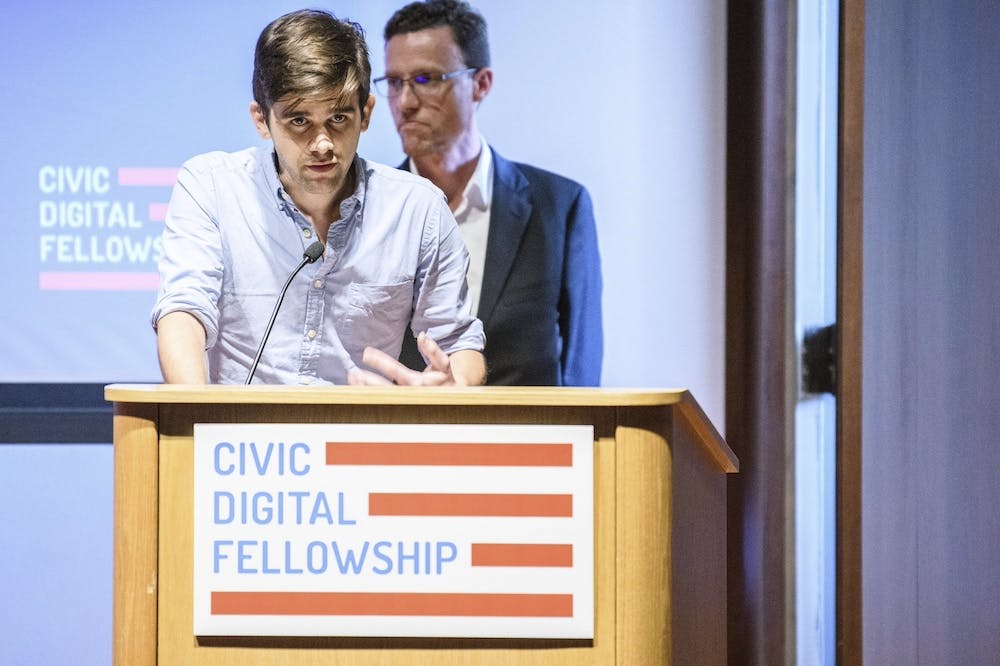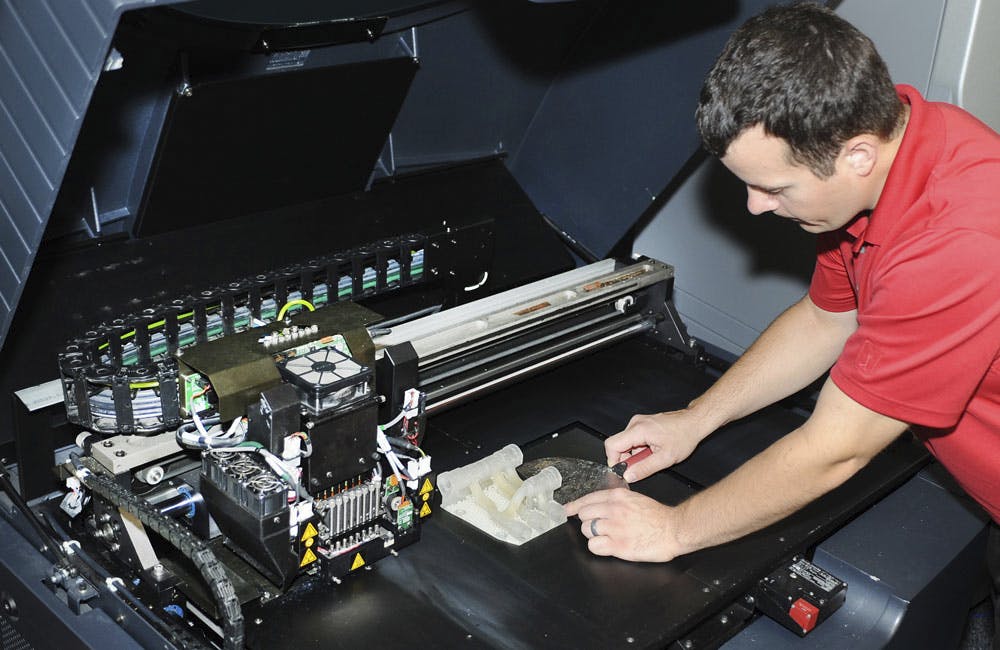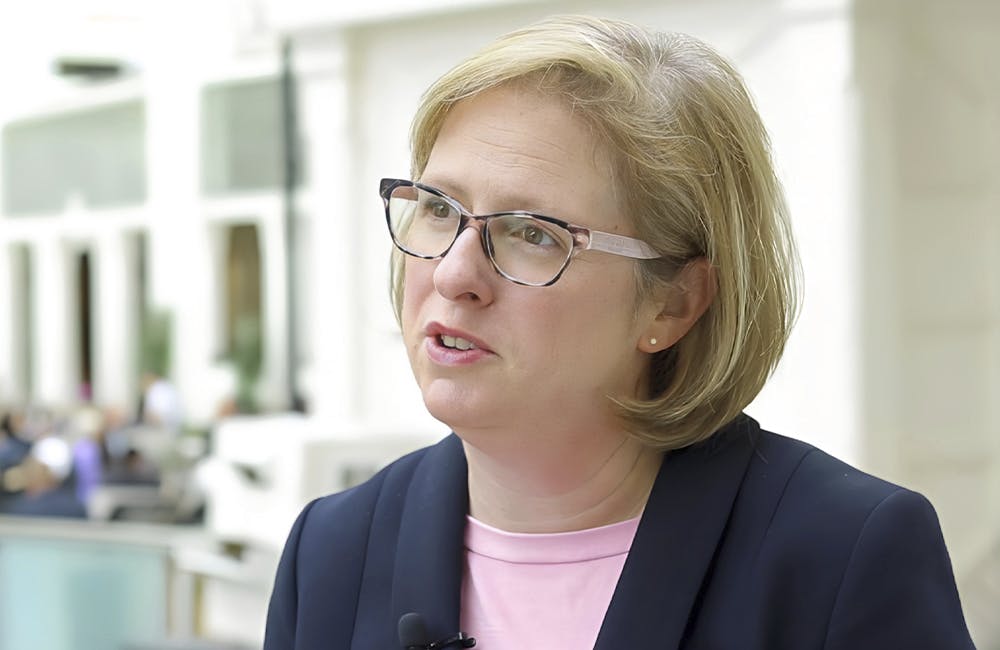Coding It Forward Offers College Students Meaningful Work in Federal IT
A civic tech fellowship program aims to increase the young talent pipeline and help meet agencies’ mission needs.

Coding it Forward, a student-started nonprofit organization, is empowering young technologists to bring about impactful social change in the federal government. Last month, the organization completed its third Civic Digital Fellowship program.
Since 2017, the competitive program has offered undergraduate and graduate students interested in data science and technology work in the federal government.
“The mission of the Civic Digital Fellowship is to break down the barriers to entry to federal government jobs for students interested in working in technological fields,” said Coding it Forward’s Co-Founder Rachel Dodell. “What that means to us is bringing together students across software engineering, product management, data science and design to work at six different federal agencies this summer for a period of 10 weeks.”
The cohort has increased this summer to 55 compared to 14 its first summer and includes students from prestigious schools such as Columbia, Yale, Harvard, MIT and Stanford, among others. The fellowship has also expanded from its initial partnership with the U.S. Census Bureau to five additional agencies this year — the Bureau of Labor Statistics, Department of Health and Human Services, U.S. Citizenship a Immigration Services, General Services Administration and National Institutes of Health.
“I came for the mission,” said Cornell undergraduate student Amit Rajesh. The 19-year-old computer science major acted on the opportunity to apply to the fellowship after first learning about it in a school email. After he was accepted into the 2019 cohort, he was matched by the program as an engineering fellow at the National Institutes of Health, where he automated work processes related to the cloud. Rajesh even developed a website to educate others about cloud computing in biomedical research.
“Everyone genuinely believed in the mission. It was refreshing to see that. I’m not sure that I would see that in the private sector,” he added.
“Being able to have an impact as a single person — there’s really nothing like it,” said Columbia graduate student Alex Curtis.
Curtis, 26, learned about the program through a former fellow and was eager to apply. Studying transportation planning engineering in graduate school, with an undergraduate degree in philosophy, Curtis was a nontraditional applicant.
“When I started school, data science wasn’t a major. Now it is,” Curtis said.
However, he had skills that set him apart. They included communication and technical data science skills, which proved helpful during his time explaining technical work to others.
During his time as a data science fellow with the Department of Health and Human Services, Curtis created a natural-language processing pilot for analyzing topics and public comments for a tick-borne disease working group use case. He entered a GSA 10x competition and won $20,000 of funding for the first round, with the goal of scaling it across government through GSA implementation.
“It was one of the few times when I was able to own a project,” Curtis said. “Now I can call myself a data scientist more so than I could before the program.”
Though he had other job opportunities available to him, he similarly expressed that the program’s civic tech mission ultimately drew him in.
“There have been situations where I would be able to make more money for things I don’t really care about,” said Curtis. “Mission-oriented work is really important to me, and the fellowship really solidified that for me.”
And the problem isn’t finding people to work in the federal government, he said, since there are plenty of talented individuals who are driven by meaningful work. Part of the problem is the means by which government can bring young talent in, which the fellowship accomplishes.
“Coding it Forward hit something. It found a way to get people who are more or less being let down by the big systems, corporate, and find ways to get them to do other things,” he said. “I think the more there are established channels for people to accelerate change, the easier it is to implement change. I think that once the government figures out that problem, they’re not going to have a hard time hiring people like these.”
Truly, the focal point of the program is the meaningful civic tech work students get to do. The students are given a unique opportunity to work on high-impact, human-centered design IT projects aimed to improve how agencies operate and better serve their constituents. They also receive attractive perks, such as $4,000 for undergraduate students and $5,000 for graduate students, free housing with other fellows and free transportation to D.C.
The fellowship ends with the fellows showcasing their agency-specific work with their agency colleagues, program cohort and to the public during Demo Day. Demo Day also highlights the importance of supporting work programs for the younger generation like these to successfully innovate in government.
“We have 2.1 million civilian workers here in the federal government who toil day in and day out, and literally, the word ‘bureaucracy’ defines how most of those folks have been culturally trained to work,” OPM Director Margaret Weichert told the fellows at the 2019 Civic Tech Fellowship Demo Day, noting that the challenge with technologically transforming government starts with people. “What you are doing is part of a journey of actually transforming government to be what it needs to be in the 21st century.”
And change isn’t easy. When it comes to offering ideas to facilitate changes necessary to streamline work processes using automation, compared to the private sector, “in the government, it’s not that simple,” said Rajesh.
“In the government, when you want to promote change — regardless of what team you’re on — it’s a challenge because of the size and how many hoops you need to jump through,” Rajesh said. “When you’re a 19-year-old intern, it’s hard to do all that.”
Competition from the private sector is also high for young IT talent, from pay to more flexibility to simply the pace of change. “When your motivation is to help society and to promote common good and social good, sometimes, even though that’s your goal, I’ve noticed the private sector is a lot more effective at solving these tasks, even though its motive is more profit-oriented,” Rajesh said.
“I wish there was a sector that would combine the effectiveness of the private sector with the intention of the public sector,” he added.
Through more involvement in federal work, the younger generation can change the government’s compliance ingrained in its DNA, as Weichert said, and ask important questions through technology, data and analytics.
The solution to attracting young talent in federal IT seems obvious, though. Federal agencies should make sure students understand the benefits of working in the public sector and that they can make a meaningful difference with their work, but also create more awareness of how they can get started — whether it be through fellowships like this, federal internship programs or even encouraging starting out with social impact work outside of government.
“There is a huge number of people in college and just starting out their careers who really want to make a big impact. They want to use their skills to do good in the private sector and just in general. A lot of people don’t know that,” Johncarlo Cerna, a University of Florida computer science major who worked at the U.S. Citizenship and Immigration Services, said during Demo Day.
But it’s one thing to attract talent and another thing to keep it. Still, the fellowship is a good step in the right direction, according to Rajesh.
“I think we need to change the way the government is seen by young people, and I think these initiatives that the agencies are doing to get more CS majors, more data science majors, into the program through fellowships is actually a really, really good step,” Rajesh said. “Those people, through fellowships, are going to improve the technological infrastructure. They’re going to make it easier for people to come on maybe for full-time. Once that stuff is there, once the technology is there, and once the government doesn’t have a reputation of being slow and cumbersome, then agencies can say, ‘We don’t pay as much as Google, but we’re actually doing stuff that makes a difference.’ And that would resonate with a bunch of people.”
This is a carousel with manually rotating slides. Use Next and Previous buttons to navigate or jump to a slide with the slide dots
-

How Agencies are Upskilling the Workforce in AI
Federal officials are putting in place new training and education methods to ensure its overall workforce understands the technology.
3m read -

A Prepared Workforce is Key to Cyber Resiliency
Strong training strategies and emphasizing cyber hygiene basics enhance security practices at federal agencies.
2m read -

Navy Invests in Additive Manufacturing Workforce to Match Pentagon Strategy
DOD issued its Additive Manufacturing Strategy in 2021 to integrate with the private sector and create agile uses of the technology.
5m read -

Defense Officials: Cyber is a Sport That Needs Strong Teammates
Coast Guard, Marine Corps and Navy officials said they are working on new hiring strategies and partnerships amid evolving threats.
5m read







